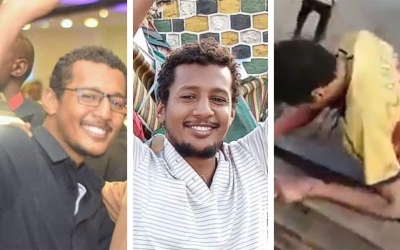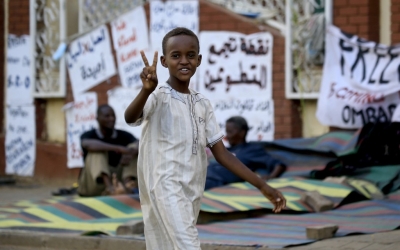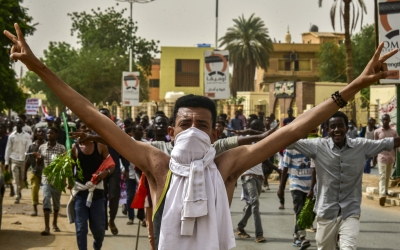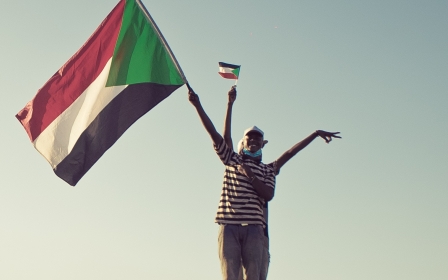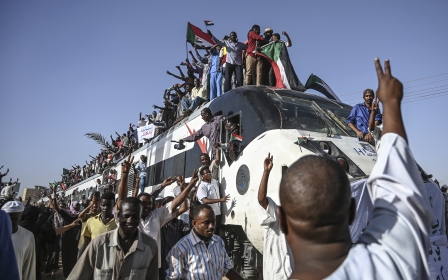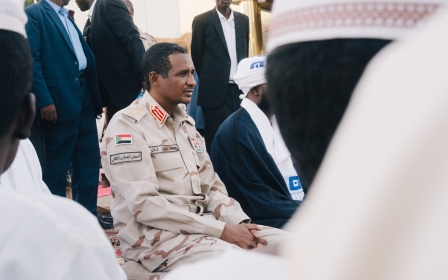Sudan's opposition and military leaders resume stalled negotiations
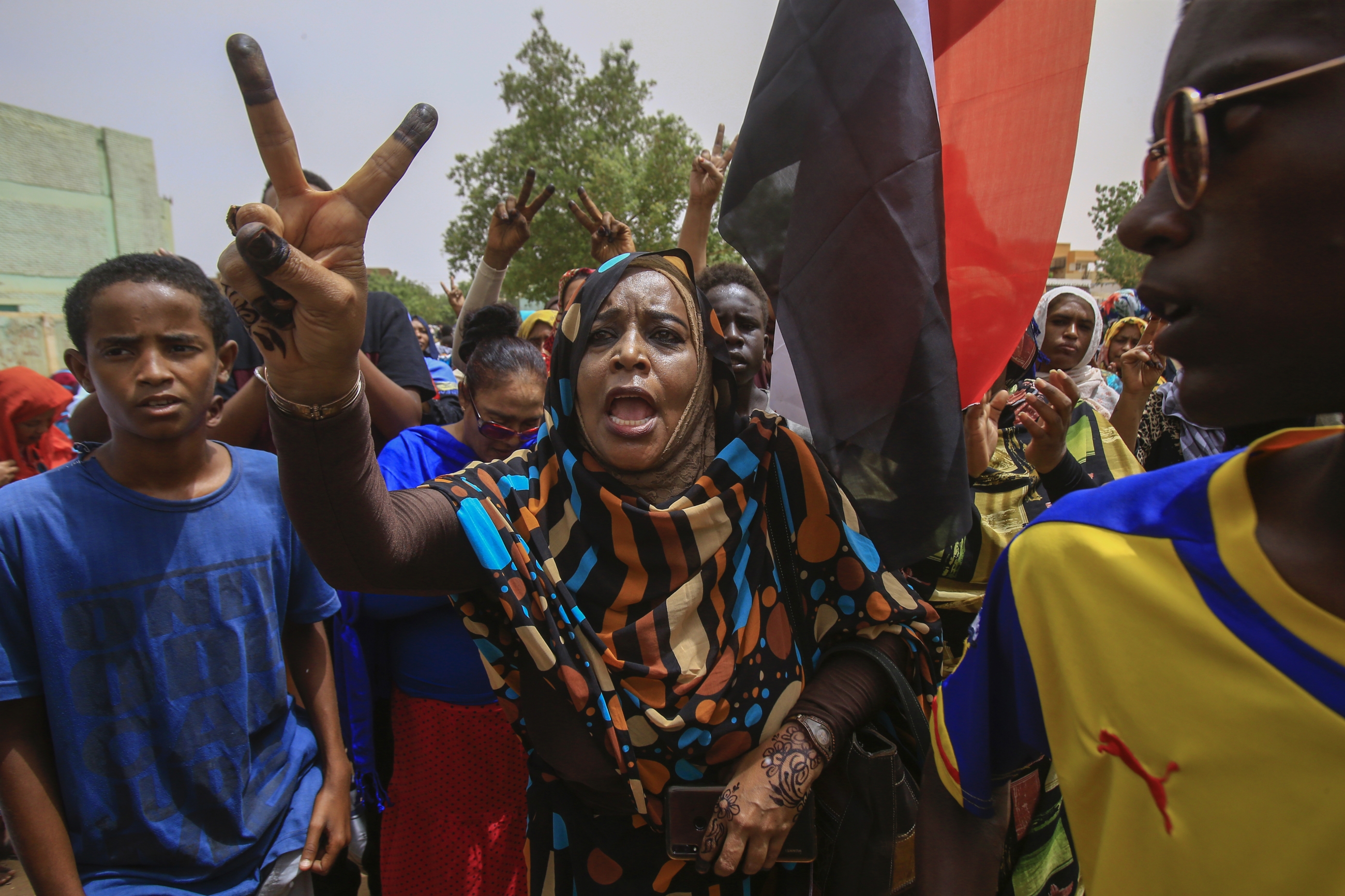
Sudan's military and opposition leaders have resumed talks in Khartoum after regional mediators urged the two sides to renew negotiations on the formation of a new government.
Three generals from the ruling military council, including its deputy chief General Mohamed Hamdan Dagalo, and five protest leaders, resumed talks at a luxury hotel in the capital on Wednesday, AFP news agency reported.
The two parties met at the request of African Union (AU) and Ethiopian mediators.
The blueprint drafted by the mediators calls for a civilian-majority governing body, according to AFP.
Before the meeting, opposition leader set a condition that the talks lead to a decision "within 72 hours", the news agency reported.
It was unclear if military leaders came to the table with their own conditions.
Still, on Wednesday, the head of the military council, General Abdel Fattah al-Burhan, ordered the release of 235 members of the Sudan Liberation Army, a rebel group and faction of the protest movement fighting government forces in war-torn Darfur.
The move may be seen as an act of good faith by the military.
Failing negotiations
Both Ethiopian Prime Minister Abiy Ahmed and the AU have been trying to mediate a transition agreement for weeks.
The Ethiopian plan calls for a civilian-majority government council, but details of the AU plan have not been released.
Opposition leaders say the two plans are similar.
On 23 June, the opposition coalition agreed to the Ethiopian plan, but it was rejected the next day by military council leaders, who said they preferred the AU's plan, Reuters reported at the time.
Sudan's protests: A brief timeline
+ Show - HideSudanese protests have evolved in the space of less than six months from complaints about bread prices to calls for long-term leader Omar al-Bashir to go and demands for a civilian-led transition to democracy.
Here's a summary of the key moments so far since the protests began.
19 December 2018: People take to the streets in the city of Atbara to protest against a government decision to triple the price of bread, torching a local ruling party office. By the next day protesters on the streets of Khartoum and other cities calling for "freedom, peace, justice". Police try to disperse the crowds, resulting in at least eight deaths. Dozens more will be killed in the weeks of protest that follow
22 February 2019: Sudanese President Omar al-Bashir declares a nationwide state of emergency. He swears in a new prime minister two days later, as riot police confront hundreds of protesters calling for him to resign
6 April: Thousands gather outside the army's headquarters in Khartoum, chanting "one army, one people" in a plea for the military's support. They defy attempts by state security forces to dislodge them and troops intervene to protect them
11 April: Military authorities announce they have removed Bashir and that a transitional military council will govern for two years. Despite celebrations at Bashir's demise, protest leaders denounce the move as a "coup" and the protesters remain camped outside army headquarters.
14 April: Protest leaders call on the military council to transfer power to a civilian government
20 April: Sudan's military rulers hold a first round of talks with protest leaders
27 April: The two sides agree to establish a joint civilian-military ruling council, but talks stall over differences in the composition of the council, with both sides demanding a a majority
15 May: With negotiators reported to be close to agreeing a three-year transition to civilian rule, military leaders suspend talks and insist protesters remove barricades outside the army's headquarters. Talks resume on 19 May but break down again on 20 May, with the opposition insistent that a civilian must head the transitional governing body
28 May: Thousands of workers begin a two-day strike to pressure the military rulers and call for civilian government
3 June: At least 35 people killed and hundreds injured, according to opposition-aligned doctors, as security forces firing live ammunition move to disperse the protest camp outside army headquarters
4 June: General Abdel Fattah al-Burhan, the head of the military council, announces that all previous agreements with protest leaders are scrapped and says elections will be held in nine months
Later last week, the military council indicated that it tentatively approved of a consolidated AU-Ethiopian proposal.
Negotiations between the two sides began to deteriorate in May, as neither side could come to a compromise over the make-up of a new government, namely, who should lead it - a civilian or a soldier.
The relationship collapsed further after an army-led crackdown on 3 June killed more than 100 opposition protesters at a peaceful sit-in near the military headquarters in Khartoum.
The ruling military council insists it did not order the violent dispersal of the sit-in, but it has admitted to "violations" during an operation to clear a section of the protest that it had described as a hub for "lawless behaviour".
In talks before the 3 June crackdown, protest leaders and the generals had agreed on a three-year transition period and the formation of a 300-member parliament, with two-thirds of lawmakers from the protest movement.
However, the military council cancelled all agreements it had reached with the opposition after the sit-in's dispersal.
On Sunday, in what was the first mass protest against the generals since the raid, tens of thousands of demonstrators took to the streets demanding civilian rule.
Seven people were killed during the demonstration, the official SUNA news agency reported.
The date marked the 30th anniversary of the coup that brought former president Omar al-Bashir to power.
Bashir was toppled by the military on 11 April after months of mass demonstrations against his rule.
Protest leaders have since called for a similar mass protest to take place on 13 July.
Middle East Eye propose une couverture et une analyse indépendantes et incomparables du Moyen-Orient, de l’Afrique du Nord et d’autres régions du monde. Pour en savoir plus sur la reprise de ce contenu et les frais qui s’appliquent, veuillez remplir ce formulaire [en anglais]. Pour en savoir plus sur MEE, cliquez ici [en anglais].


